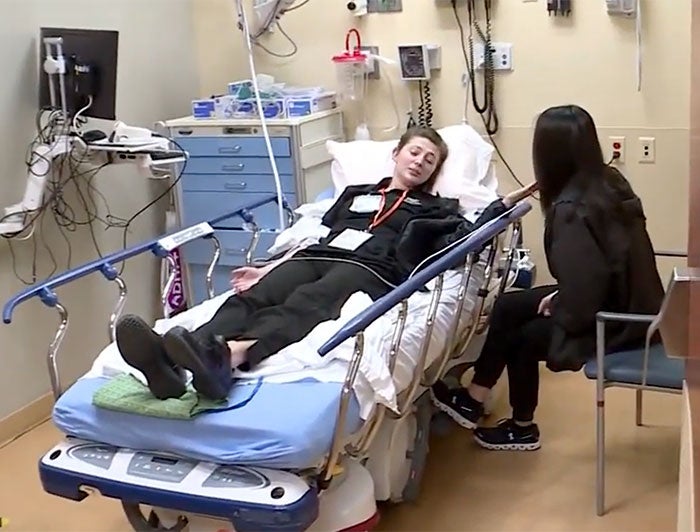CommonSpirit hospitals conduct large-scale bioterrorism exercise in Colorado Springs
Penrose Hospital
Colorado Springs, Colo.

Many a patient has been rushed to the hospital following a medical emergency. But when an emergency impacts the hospital itself, what can be done?
The answer: plan, rehearse and prepare.
Penrose Hospital in Colorado Springs was among three area caregivers to participate in a February, 2023 staged exercise that simulated the effects of a bioterrorism attack, in this case botulinum toxin — one of the most poisonous known naturally-occurring substances — placed in the local milk supply.
Held simultaneously in all three hospitals, the drills were designed to test hospital, public health and law enforcement response to a bioterrorism attack.
The exercise was one of several drills the hospital system conducts throughout the year to safeguard patients and staff. Other scenarios include simulated plane crashes, large-scale fires and multi-vehicle crashes.
“Drills like these help us focus on three areas: readiness, response and recovery,” says emergency preparedness manager Sara Baird. “Our goal is to observe how the emergency departments communicate with one another, activate incident command, report to infection prevention and the Public Health.”
Keeping real-world casualties to a minimum is the ultimate goal of the drills, and that can depend on getting the right agencies involved to keep a bad situation from growing into a large-scale tragedy.

